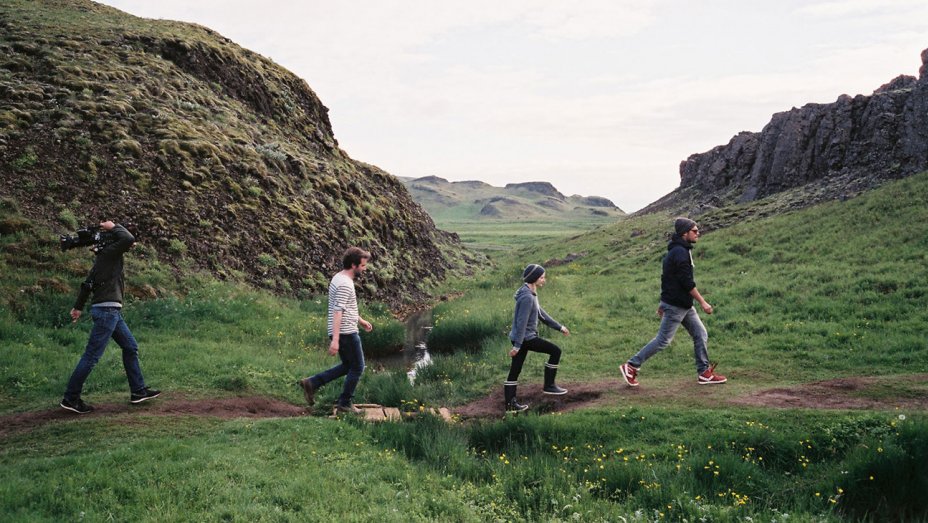Tomorrow
“Tomorrow”
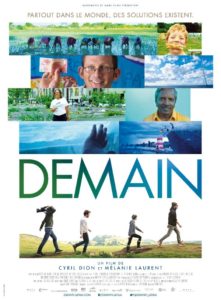 Whenever there is a documentary about environmental degradation in the world and its effects on the population, a denouncing format is used to raise awareness of the seriousness of the problem. So it’s a nice surprise to see a documentary like “Tomorrow” (“Demain Le Film”, 2015), which gives us a totally different view, showing successful cases of implemented solutions.
Whenever there is a documentary about environmental degradation in the world and its effects on the population, a denouncing format is used to raise awareness of the seriousness of the problem. So it’s a nice surprise to see a documentary like “Tomorrow” (“Demain Le Film”, 2015), which gives us a totally different view, showing successful cases of implemented solutions.
Learning from a study of 21 scientists in the journal Nature, where it was shown that climate change, land degradation and population growth were moving to critical levels, a group of friends linked to the cinema decided to take action, analyzing the situation and exposing it through their profesional language.
Without being environmentalists or scientists, but parents worried about the future of their children, they traveled the world, seeking solutions found by extraordinary normal people, with no connection with companies, banks or governments.
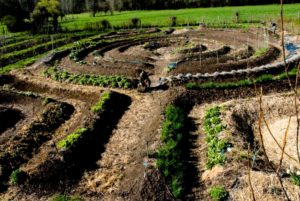 With a vast amount of material collected during their travels, the group organized the documentary in five different approaches: Agriculture, Energy, Economy, Democracy and Education.
With a vast amount of material collected during their travels, the group organized the documentary in five different approaches: Agriculture, Energy, Economy, Democracy and Education.
When analyzing Agriculture, they found that most of the land today is occupied by large corporations in monocultures, such as soybeans or sugarcane, that deplete the soil and are extremely inefficient in food production. On the other hand, numerous examples of food production are shown: shared farms in small spaces with high productivity, taking advantage of diversity, which is as it happens in nature.
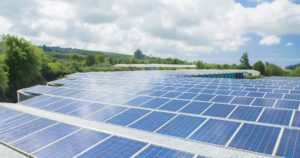 In the chapter on energy, it is shown how fossil fuels, oil and coal, are ubiquitous in all aspects of modern life, contributing to global warming.On the other hand, places like Reunion Island, Sweden and Iceland are increasingly adopting alternative energy sources such as sun, wind and water, setting audacious targets to get rid of fossil fuels, and even the dangerous nuclear option.
In the chapter on energy, it is shown how fossil fuels, oil and coal, are ubiquitous in all aspects of modern life, contributing to global warming.On the other hand, places like Reunion Island, Sweden and Iceland are increasingly adopting alternative energy sources such as sun, wind and water, setting audacious targets to get rid of fossil fuels, and even the dangerous nuclear option.
 In the economics chapter, some obvious notions – unknown to most of the population – raise the alarm for our dependence on large banking conglomerates, and their dire consequences, as seen in recent global crises. The film shows how solutions that privilege the local economy are important in the generation of employment and circulation of goods.
In the economics chapter, some obvious notions – unknown to most of the population – raise the alarm for our dependence on large banking conglomerates, and their dire consequences, as seen in recent global crises. The film shows how solutions that privilege the local economy are important in the generation of employment and circulation of goods.
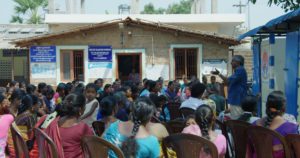 Talking about democracy, we see that what we think as a democratic way of governing is actually a – often spurious – relationship of a group of elected politicians with powerful economic groups, seldom resulting in anything beneficial to the population.Successful examples are shown in India and Iceland where unimaginable results have been achieved, built on the people’s awareness and active participation in the fate of their city, region or country.
Talking about democracy, we see that what we think as a democratic way of governing is actually a – often spurious – relationship of a group of elected politicians with powerful economic groups, seldom resulting in anything beneficial to the population.Successful examples are shown in India and Iceland where unimaginable results have been achieved, built on the people’s awareness and active participation in the fate of their city, region or country.
 Finally, when studying education, the group analyzed the country that is recognized as having the best educational system in the world, Finland. Despite being a country with a severe climate and without great natural resources, the educational system is praised throughout the world. And, it turns out here that there are almost no technological resources. What we see are classes with few students and more than one teacher, all of them with a lot of years in university and assisted experience, little supervision and a lot of responsibility, as well as a good relationship between leaders, teachers and students – besides the gratuity of teaching, of course .
Finally, when studying education, the group analyzed the country that is recognized as having the best educational system in the world, Finland. Despite being a country with a severe climate and without great natural resources, the educational system is praised throughout the world. And, it turns out here that there are almost no technological resources. What we see are classes with few students and more than one teacher, all of them with a lot of years in university and assisted experience, little supervision and a lot of responsibility, as well as a good relationship between leaders, teachers and students – besides the gratuity of teaching, of course .
The film is extremely well done, with exquisite photography, music and edition, without any appealing aspect, and at the same time escaping from the monotony of a traditional documentary. “Tomorrow” won the César prize (French Oscar) for Best Documentary Film, Best Director (Cyril Dion and Mélanie Laurent), and Best Production (Bruno Levy).
 It’s hard not to feel a great deal of hope watching this documentary, especially knowing that it’s not just the solutions shown in the film that are in progress. Thousands of cities are just now adopting alternative solutions to do their part and reverse the perverse destiny we have been creating for ourselves.
It’s hard not to feel a great deal of hope watching this documentary, especially knowing that it’s not just the solutions shown in the film that are in progress. Thousands of cities are just now adopting alternative solutions to do their part and reverse the perverse destiny we have been creating for ourselves.
And for those who were interested, two good news: “Tomorrow” is on the schedule of the Varilux French Film Festival of 2017 that begins next June 8, and for those who can not see it on the big screen, it can be found in the Brazilian Netflix catalog.
Original title: “Demain Le Film”

